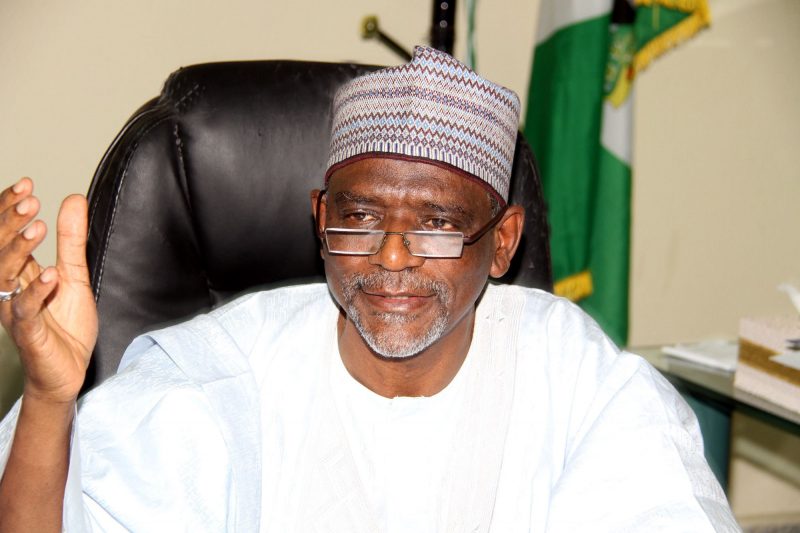In another attempt to ease knowledge acquisition for learners in Nigerian schools, the federal government recently approved a new National Language Policy that seeks to make mother-tongue a compulsory medium of instruction in the first six years of basic education; from primary 1 to 6. Addressing reporters after a meeting of the Federal Executive Council, the Minister of Education, Malam Adamu Adamu, said mother-tongue would be used exclusively for the first six years of education; adding that it would be combined with English language from Junior Secondary School.
Adamu, however, said the policy could only be fully implemented when government developed instructional materials and provided qualified teachers. He noted that the decision is only in principle for now as it would require a lot of work to implement. Although the minister declared that all Nigerian languages are equal and shall be treated as such, he was quick to add that the mother-tongue to be used in each school would be the dominant language spoken by the community where it is located.
The minister further clarified that “Mother tongue is mother tongue, don’t think when we say mother tongue, pupils will be taught in Hausa, Igbo and Yoruba only.” He also said government pursued the policy to preserve cultures and their peculiar idiosyncrasies because so much had been lost due to the extinction of some local languages. “We have 625 languages at the last count and the objective of this policy is to promote, and enhance the cultivation and use of all Nigerian languages,” he added. Substantiating the significance of the policy, Adamu emphasised that “pupils learn much better when instructions are given in their own mother-tongue at that level.”
While some educationists describe the new language policy as a good development, others who differ express doubts over the implementation of the policy. The latter group cites the challenges of many pupils not understanding the local language of the immediate community in which they reside, arguing that the implementation of the policy would only make teaching and learning difficult for both teachers and learners. Others equally interrogate the sustainability of the policy at the junior secondary level.
Meanwhile, the umbrella body of publishers in the country, the Nigerian Publishers Association (NPA), has commended the federal government over the policy; saying the decision was timely and a way to advance the education sector. NPA said the policy was in line with the association’s calls for the adoption of indigenous languages in the teaching of science in primary and secondary schools.
In a statement signed by the association’s president and chairman-in-council, Dr Uchenna Cyril Anioke, NPA said the country, with this singular move, is on its way to joining global powers in science and technology as the pupils will assimilate better in the mother-tongue than in English which is a borrowed language. Anioke said North Korea, which is becoming the world’s strongest nuclear force, hardly writes in English language but in their local language where, according to him, they hide their ideas and innovation from those who do not understand the language. “China is a developed country and leads in construction and infrastructure. They hardly speak English and all their books are in local language”, Anioke also said.
It would be recalled that a seasoned educationist and Nigeria’s former minister of Education Prof. Aliyu Babatunde Fafunwa, had argued in favour of this policy many decades ago. Children were observed to learn better when the language of instruction was the mother-tongue. Besides, the use of mother-tongue enhances the preservation of indigenous languages. Consequently, Fafunwa’s verifiable claims led to the inclusion of Section 20(d) in the existing National Policy on Education (NPE) wherein government states “The medium of instruction in the primary school shall be the language of immediate environment for the first three years in monolingual communities. During this period, English shall be taught as a subject”.
While we commend government efforts at fostering learning in mother-tongue at the basic level of education in Nigeria, we lament the difficulty experienced in the implementation of Section 20(d) of the NPE which only covers the first three years of primary education. This old but existing policy has, since its ratification, been next to nothing; all due to dearth of the requisite manpower to implement it, including teachers trained in Nigerian languages. The failure experienced in the implementation of Section 20(d) of the NPE simply suggests that the new policy, which according to government, shall come into force only when the resources to do so are available, is another hollow pronouncement meant not to go beyond paper authorisation.
The National Institute for Nigerian Languages in Aba, Abia State, should be repositioned to produce the manpower required for the implementation of the existing and new national language policies. Although Daily Trust supports every move that encourages the development of Nigeria’s local tongues to the level of national and regional languages, parents as a way of complementing the implementation of any given language policy are urged to speak their native dialects with their children while at home. To avert making meaningless policies, government is advised to first achieve a reasonable level of success in the implementation of a particular language policy before a more complex one is announced.

 Join Daily Trust WhatsApp Community For Quick Access To News and Happenings Around You.
Join Daily Trust WhatsApp Community For Quick Access To News and Happenings Around You.


